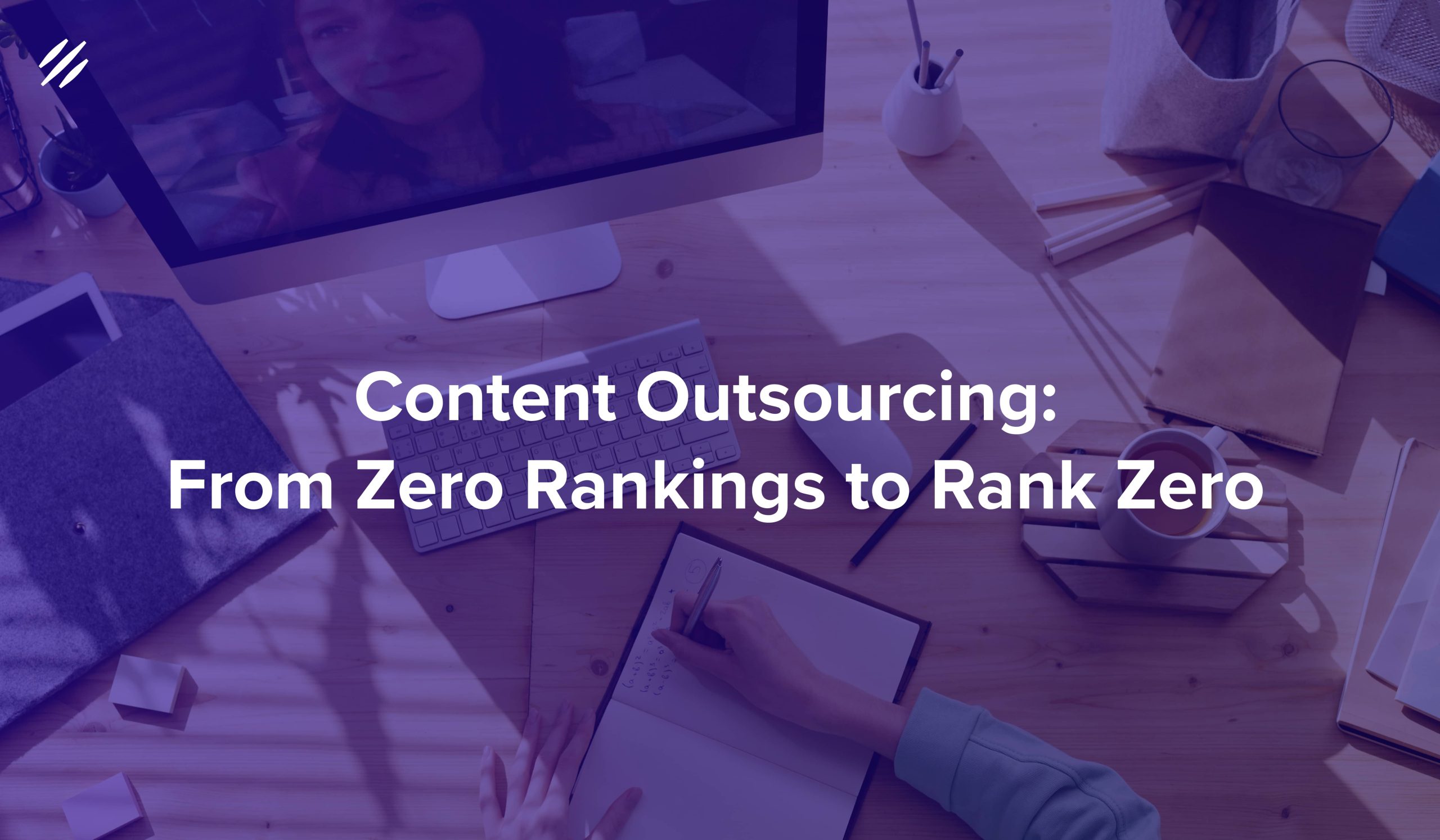Introduction
Outsourcing work has been a point of contention among many professionals in various industries. As many businesses try to determine whether outsourcing is the best path forward in a digital world demanding high-quality, cost-effective and efficient services, many brands are left wondering, “what is outsourcing,” and, perhaps more importantly, “ is outsourcing worth it,”? Well, when in doubt, we turn to stats, and what we’ve found is truly impressive:
- 65% of businesses report that outsourcing work helps employees focus on core tasks.
- 63% of businesses say outsourcing helps reduce costs.
- 53% of freelancers offer skilled services.
- More than 50 million Americans freelance.
The next stat is both impressive and problematic.
Google has seen an increase of over 258% in the last five years with regard to the search term “freelancing.”
So with growing demand in the freelance sector and the gig economy and millions of freelancers and professionals to choose from, how can you be sure that your outsourcing efforts will actually produce useful results?
In this article, we’ll delve into what makes outsourcing the way forward in 2023 and beyond, the pros and cons of outsourcing, along with a comparison between some of the best outsourcing companies worldwide.


What Is Outsourcing in Business?
Hiring an individual or external business to provide goods or services that internal employees or departments within a business typically provides is known as outsourcing work. Outsourcing can be an extremely valuable solution to a wide range of business challenges in almost every sector.
From information technology (IT) and human resources (HR) to manufacturing and customer support, outsourcing solutions are endless, but finding the right outsourcing solutions from a slew of so-called “best outsourcing companies” lists is easier said than done.
So let’s take a look at the different kinds of outsourcing as well as some of the top outsourcing platforms to consider outsourcing work to.
Types of Outsourcing
As mentioned previously, there are various types of outsourcing which are generally based on the type of tasks and industry your business falls under. Here are six of the most common types of outsourcing in business:
- Professional outsourcing
- IT outsourcing
- Manufacturing outsourcing
- Project outsourcing
- Process outsourcing
- Operational outsourcing
When it comes to outsourcing, you’ll generally have a choice of what’s known as onshoring, offshoring or nearshoring (also known as reshoring).
What is Onshoring?
Onshoring is when services and products are outsourced locally from the same country where your business operates.
What is Offshoring?
Offshoring is when services or products are outsourced from a different country, typically, as the name suggests, to another continent or shore, even time zone. In other words, your operations or some operations are moved offshore.
What is Nearshoring?
Nearshoring is quite similar to offshoring, except that your operations or part of your operations are moved to a shore or region near your business location. This could be a neighbouring country in the same or different time zone.
Choosing between offshoring or nearshoring is completely dependent on your business needs as both have advantages and disadvantages of outsourcing to consider, especially if you intend to source your talent on your own versus using an outsourcing agency.


Pros and Cons of Outsourcing?
There are various advantages and disadvantages of outsourcing, and a lot of it has to do with where you are outsourcing your operations or product from.
Pros of Outsourcing
1. Reduced Costs. Increased Profits.
Outsourcing core or non-core tasks can effectively reduce your operational costs, especially when offshoring to a country where labour costs are lower. You also won’t have to factor in overheads, hiring and training in-house employees, etc.
2. Increased Efficiency. Stronger Economy.
Outsourcing menial tasks free up highly-skilled workers so that they can focus on core tasks, allowing them to use their time more productively. In fact, economists believe that distributing tasks based on skill level also increases the economy’s overall efficiency.
3. Better Quality. Better Experience.
Outsourcing work opens the doors to not only finding a suitable vendor or person for the job but, rather, the best person for the job. You’ll have access to global services and products along with innovative technology and solutions that may not be available locally.
These are just some of the many pros of outsourcing that can be achieved with any type of outsourcing, yet with the advantages come a few disadvantages.
Cons of Outsourcing
As mentioned earlier, there are both advantages and disadvantages of outsourcing.
1. Decrease in Quality & Control.
When a business function is outsourced, it becomes increasingly challenging to control the level of quality of your product(s) or services. This is particularly true when it comes to offshoring, as labour standards may differ from country to country. In other words, what may be considered “good quality” in one country may be of subpar standard in another. Another factor that could affect the quality is communication barriers which impede the ability to convey your business needs effectively.
Outsourcing also means less control over managing processes and projects.
Businesses are, therefore, required to put their trust in a company or individual they may have never worked with before, which means there’s no telling what the results may be – positive or negative.
2. Less Transparency.
As a new generation of consumers focussed on transparency emerges, businesses that outsource work may struggle to provide this level of transparency. Customers now insist on knowing where their products come from, who is providing the services they’re paying for and what the labour conditions they are working under are.
For instance, a company may outsource tasks to an offshore company, which onshores non-core tasks to a company with poor labour standards, unknowingly and potentially putting the business brand image at risk.
3. Greater Security Risk.
Outsourcing a project often requires a business to entrust an external service provider with confidential and sensitive data. This could leave companies open to online threats, especially if the company you are outsourcing work to does not have cybersecurity measures in place to protect their clients’ information. Unfortunately, this is a risk that needs to be considered, whether onshoring, nearshoring or offshoring.
If your data is stored online, there will always be a risk of a data breach. The difference here is that you will have less say in terms of preventative measures, which loops back to the first of our cons of outsourcing – lack of control.
Granted, these are just some of the pros and cons of outsourcing; they are the most important when considering which business function to keep in-house or onshore and which to take near or offshore.
But, as mentioned before, there are literally thousands of outsourcing websites and freelancers to consider, so how can you be sure you’re making the right choice?
Instead of simply listing the best outsourcing companies online, let’s take a look at what you should be looking for in a reliable outsourcing platform, agency or partner.


What to look for when choosing an outsource platform or partner
1. Good Market Reputation.
Before choosing an outsourcing platform, partner or freelancer, it’s important to take a look at their reputation and what others with firsthand experience are saying about it. For example, are they known to miss deadlines? Has a competitor experienced operational challenges or received low-quality services or products? You can easily check a company’s market reputation on websites like Clutch or Trustpilot.
Having a good track record is key, but it’s also important to be wary of brand reputations that are squeaky clean. It’s not uncommon to find fake business reviews online, especially on freelance marketplaces, and a freelancer with only positive reviews should be a red flag.
After all, as the saying goes, if it’s too good to be true, it usually is.
2. Cybersecurity Measures & Network Audits.
It is extremely important to enquire about the company’s or freelancer’s privacy policies and data security measures to ensure that your sensitive information will be appropriately managed. Find out if your outsourcing agency has regular network and/or security audits. It is also advised that you sign a nondisclosure agreement to protect both parties.
3. Make Sure You Get What You’re Paying For.
Anyone who has outsourced operations has, in one way or another, encountered the disappointment that often comes with the freelance marketplace. It has become flooded with freelancers claiming to be the best in their field, offering stellar services at a meagre rate.
As yet another saying goes, you get what you pay for, and although it is a good business practice to reduce operational costs wherever possible, it should never be at the risk of reducing quality. Lowering your business standards could damage your brand or end up costing you more in the long run if you have to redo the task.
So how do you ensure that you are, in fact, getting what you‘re paying for? First, by asking about technical knowledge in their field, check for previous client recommendations or feedback. And better yet, choose an outsourcing platform that vets their outsourcing professionals.
But let’s face it, most freelance marketplaces don’t offer this service, and it’s up to the business to make that call, which could prove difficult, especially if it’s a specific sector in which you are not knowledgeable.
Blackbear is one such outsourcing company offering clients precisely that — you only pay for the level of service provided. All blackbear outsourcing professionals are assessed, and value is guaranteed through a model where our customers only pay after the delivery of a project.
After all, developing a positive brand reputation takes time and hard work, and increases your business’ financial value, so why risk it for a single sale? We wouldn’t, and neither should you.




